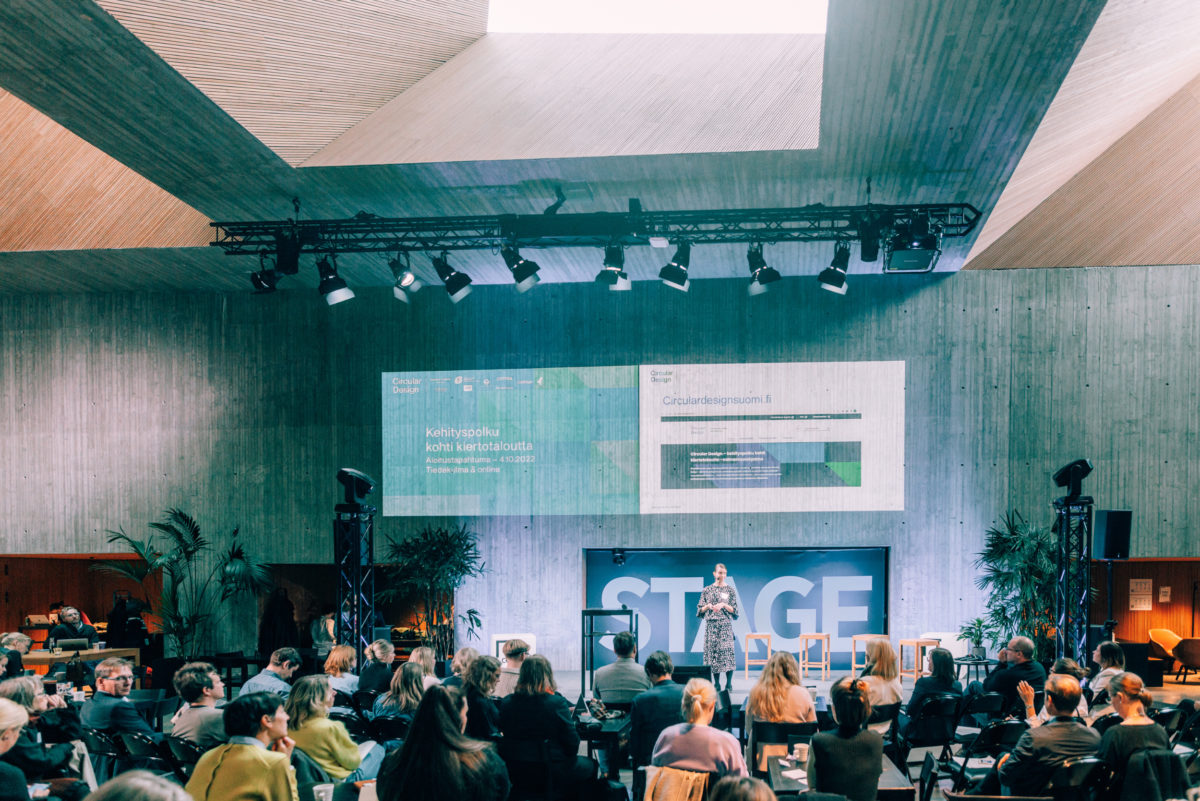In January 2023, a training programme on design capabilities in line with the circular economy will start for businesses in Finland. The programme will be unique even by international standards. The Circular Design – a path towards circular economy programme is the first of its kind that focuses on the circular economy principles for design and practical solutions for business. Companies of different sizes are participating: Stora Enso, UPM, Mirka, Helkama Velox, Kiilto and Genelec.
“Some truly pioneering companies are participating. This is the start of a new way of thinking about business and products, and hopefully the programme will help generate new ideas and practices in key sectors. The programme is part of the implementation of Finland’s national circular economy strategic programme,” says Taina Nikula, an advisor at the Ministry of the Environment.
Construction sector interested in circular economy
The construction sector was eager to join – after all, the sector is part of the Green Deal agreement, and the trade association has been active in promoting the circular economy. Textile industry businesses were also keen to apply. A total of 71 businesses applied for the programme, of which 50 were chosen.
According to Saija Malila and Anne Raudaskoski, who run the joint project of Design Forum Finland and Ethica, the main criteria was to find participants with a genuine motivation, the necessary resources for development work, and an interest in an explorative training programme that combines the circular economy and design thinking. “We didn’t want to exclude any sector or business on the basis of, for example, their size or turnover.”
Kiilto will be represented by all B2B business areas, construction, industrial adhesives and fireproofing and professional hygiene.
“From the viewpoint of product and service development, I consider value chain thinking extremely important. You also need the capability to design products in a way that they comply with the circular economy models. We know our products and customers, which is mental capital we can draw on to create new and sustainable business. I’m sure the programme will give us new insights into this work,” says Kiilto’s Research, Development and Innovation Director Oili Kallatsa.
“Once we learn more about the added value of the circular economy on different sectors, it is also important to communicate about it efficiently. This is how good operating practices can be utilised optimally,” she adds.

Source:https://circulardesignsuomi.fi/
For the good of the environment
One of the goals of the circular economy is to find solutions that improve the environment, instead of minimising the negative effects. Design carried out under the principles of the circular economy means that products and services are not developed for just one end user in mind. As an alternative, new solutions are designed to operate in larger contexts and to produce more value through multiple life cycles and users. For companies, this translates to new business opportunities and maybe even a change in the entire operating environment.
Tomi Takala, Business Area Director of Industrial Adhesives and Fireproofing at Kiilto, is excited about the training programme, and sees the advancement of the circular economy as a key part in the achievement of environmental goals.
“We have set ambitious goals to minimise our environmental impacts and to be the forerunner in our sector in terms of sustainability. This calls for a circular economy frame of mind and cooperation throughout the value chain, and we are very excited about joining this training programme to get new ideas and tools to reach our goals,” he says.
“It’s important to have a varied group of companies round the table, because no single party can implement circular economy on their own. The effects can be felt not only by the participating businesses but primarily by our customers and society at large. The circular economy can help us find entirely new ways of doing things more sustainably,” says Takala.
Background information:
- In October, businesses were sought from different sectors that wished to develop their operating model and product and service design towards a carbon-neutral circular economy.
- Design under circular economy principles helps businesses to develop their operations to meet future needs and to boost their competitiveness. The new training programme will support companies in this and in making Finland a forerunner in circular economy matters.
- Applications were screened on the basis of four selection criteria that were communicated to the applicants in advance. Selection was based on, among other things, whether the company or its industry was committed to the Circular Economy Green Deal scenario process and whether the company is able to involve participants both in senior management and among other key personnel into the programme. The plan was also to ensure that the pilot group was comprehensively represented by various industries and various development aspects.
- The training programme is part of the strategic programme to promote a circular economy, and it is implemented, under the supervision of the Ministry of the Environment by Design Forum Finland, which promotes the use of design in businesses, in cooperation with its partners VTT Technical Research Centre of Finland, SYKE, Sitra, Frankly Partners, Miltton and Alice Labs.
Banner Image: Circular Economy Kick Off Event, Tiedekulma. Photographer, Petri Antila.
